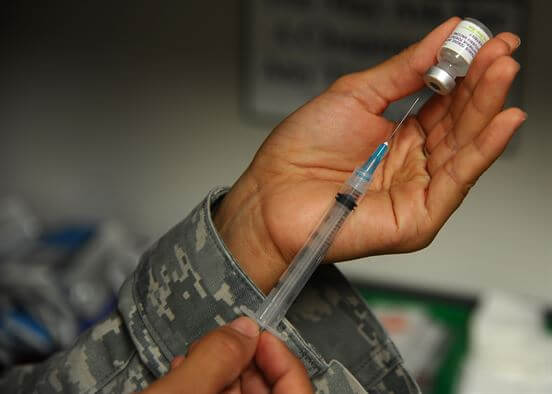
influenza type b hib vaccine what you need to know
19 Apr 2022 | 3 min Read
Tinystep
Author | 2574 Articles
Haemophilus influenzae type B (Hib) is a serious bacterial disease which usually strikes children under 5 years of age. It may also be caused in adults with some medical conditions
Hib is a contagious disease and a child may be infected by it if he is around children or adults carrying the bacteria. If the germs remain restricted to the child’s nose and throat, he will get sick but Hib causes serious health problems if they spread in the lungs and the bloodstream.
Hib disease
Hib disease was the lead cause of meningitis, which is an infection of the lining of the brain and spinal cord before Hib vaccine was available. Meningitis can cause deafness and brain damage. Hib disease can cause problems like severe swelling in the throat which makes it hard to breathe. It can also cause pneumonia and infection of the blood, joint, bones, and the covering of the heart. In some cases, if not treated properly, it can also cause death.
Hib vaccine
A child receives 3 to 4 doses of Hib vaccine, depending on which vaccine, among the several available brands, is used. The first dose of the vaccine is given at 2 months of age followed by a second dose at 4 months of age. The third dose is given (if required, depending upon the brand) at 6 months of age and the fourth, which is the final booster dose is given at 12 to 15 months of age. Hib vaccine can be given alongside other vaccines, and it can also be given as a part of a combination vaccine.
Although it is not required for children over 5 years old and adults, it may be recommended for those with asplenia or sickle cell disease.
However, it must be noted that Hib vaccine should not be given to infants under 6 weeks of age. Other than that, someone who has suffered a serious allergic reaction to the vaccine in the past must refrain from getting a dose of it and must tell the person giving the vaccine all about the allergies. If you are severely ill, it is better to recover fully before getting a shot of Hib vaccine.
Hib vaccine, like any other vaccine or medicine, can have some side effects. Most people do not face any issues after getting vaccinated. Severe reactions being caused by Hib vaccine are a rare case. However, mild problems may include fever and, redness and swelling of the part where the shot was given. These problems will go away on their own.
Complications
Any medication, including vaccines, may result in a severe allergic reaction, but the chances of it happening from a vaccine are extremely rare. The chances of severe injury or death from a vaccine are very remote. Sometimes, people faint during vaccination. If you feel dizzy, or have blurred vision, tell your doctor. A few people complain of stiffness and pain in moving the shoulder and arm where the shot was given.
The signs to look for, in case of a severe reaction are dizziness, fast heartbeat, weakness, difficulty breathing, swelling of the face. Contact the doctor immediately or get to the nearest hospital, if any such symptom persists.
A


Suggestions offered by doctors on BabyChakra are of advisory nature i.e., for educational and informational purposes only. Content posted on, created for, or compiled by BabyChakra is not intended or designed to replace your doctor's independent judgment about any symptom, condition, or the appropriateness or risks of a procedure or treatment for a given person.
